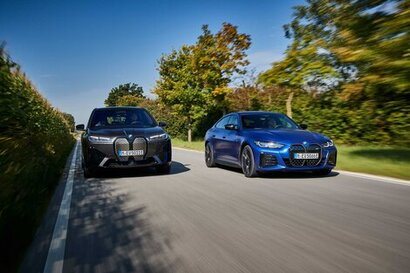
The group’s EU fleet-wide emissions came in at 102.1 grams per kilometre (WLTP) for 2023 (2022: 105 grams per kilometre). This represents a reduction of 2.8 percent from the previous year. It also outperformed the applicable fleet target limit for the company set by the European Union EU27+2 (EU, Norway, Iceland) of 128.5 grams per kilometre by 26.4 grams in 2023.
Implementation of the BMW Group’s electrification strategy is a key driver for its continuing efforts to reduce fleet-wide emissions. In 2023, the company sold a total of 376,183 fully-electric vehicles worldwide – 74.4 percent more than in 2022. The BMW Group’s sales growth for fully-electric vehicles in 2023 therefore outpaced growth in the total BEV market.
BMW currently has more than 15 fully-electric models in its line-up and aims to continue its successful BEV growth in 2024. One in five of the company’s newly delivered vehicles should have a fully-electric drive train this year; by 2025, it should be one in four.
By 2030, the company plans to reduce its total CO2 emissions by at least 40 percent per vehicle from 2019 levels and is aiming to be climate-neutral no later than 2050. It wants to achieve this throughout the entire value chain – from the supply chain to production to the use phase.
The company is the first German automotive manufacturer to join the ‘Business Ambition for 1.5° C’ campaign launched by the Science-Based Targets Initiative and also part of the United Nations’ international Race to Zero campaign.
For additional information:

